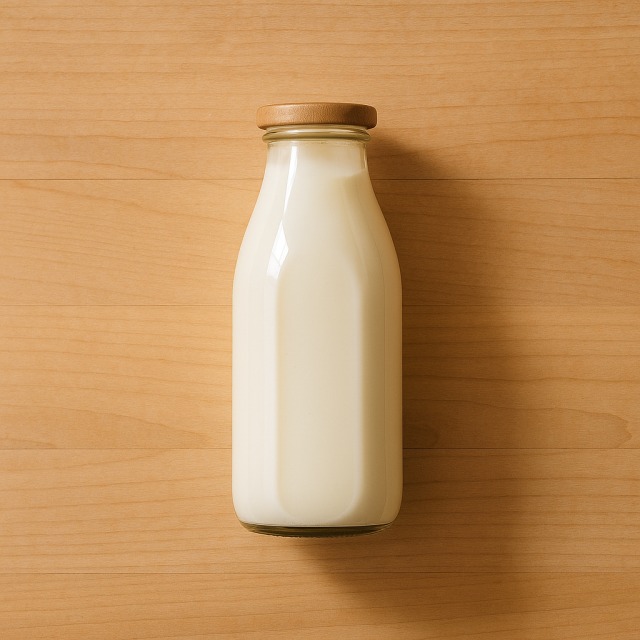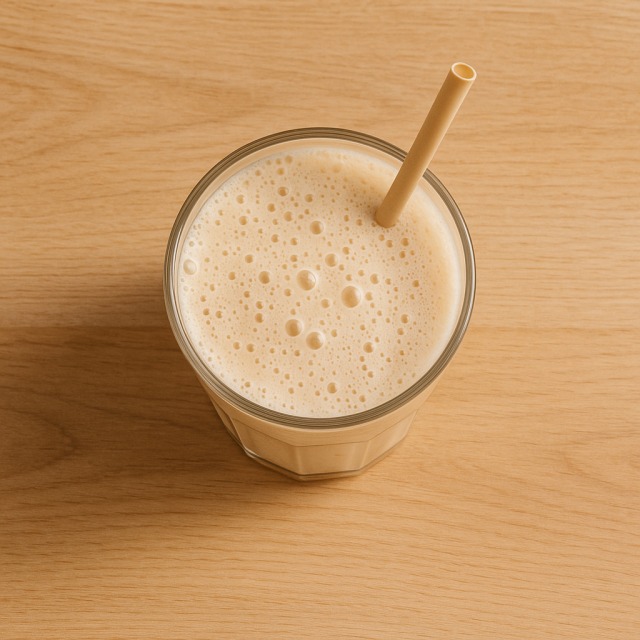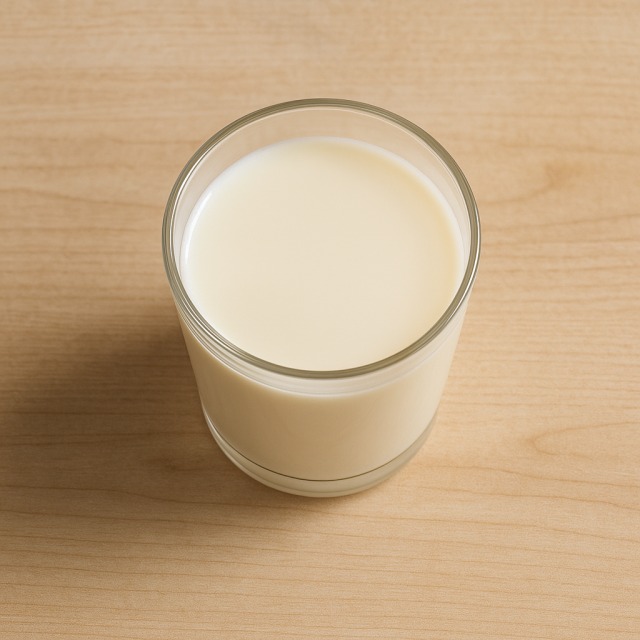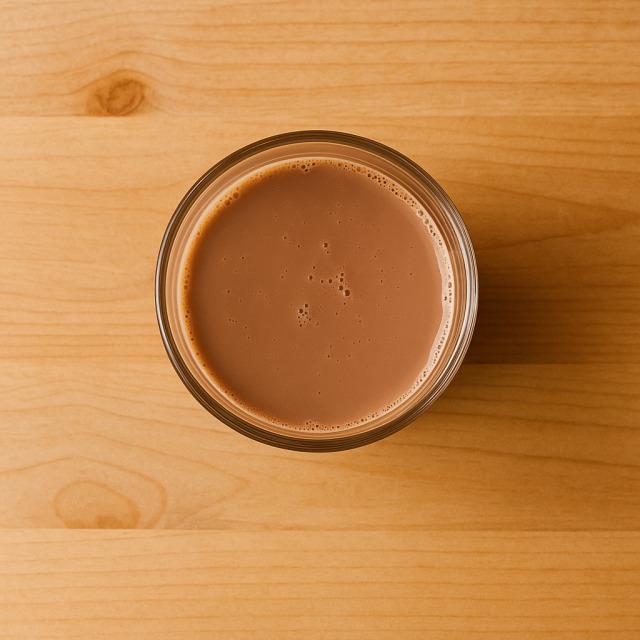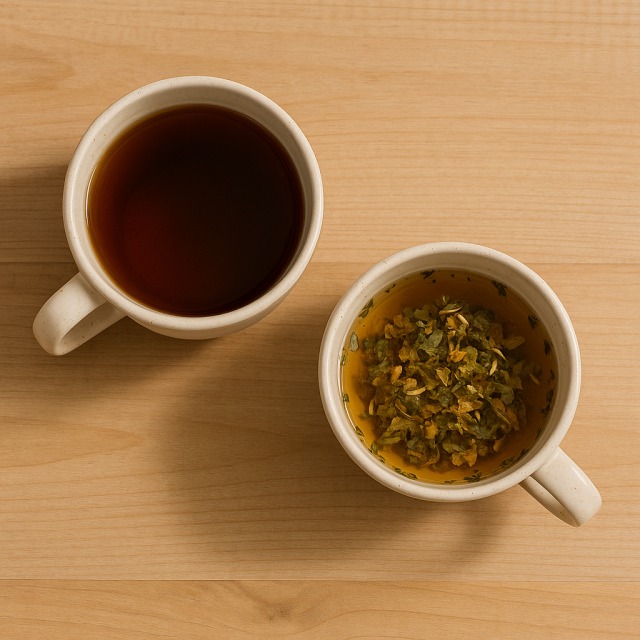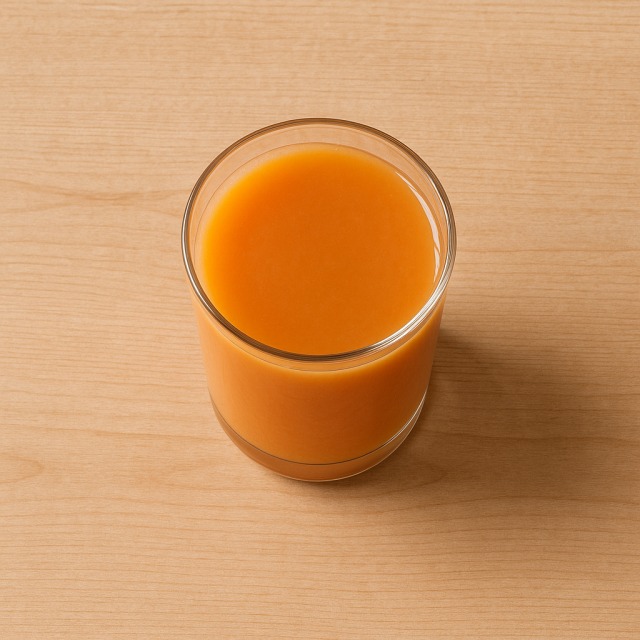Calorie Chart / Beverages / Milk - Skimmed
How Many Calories Are in Skimmed milk?
Calculation of the nutritional value & Recommended Dietary Intake of skimmed milk
For ml and a calorie requirement of kcal
| Calories 83 kcal | Proteins 8.3 g | Lipids 0.5 g | Carbohydrates 12 g |
| 4% | 11% | 1% | 4% |
Health benefits of skimmed milk
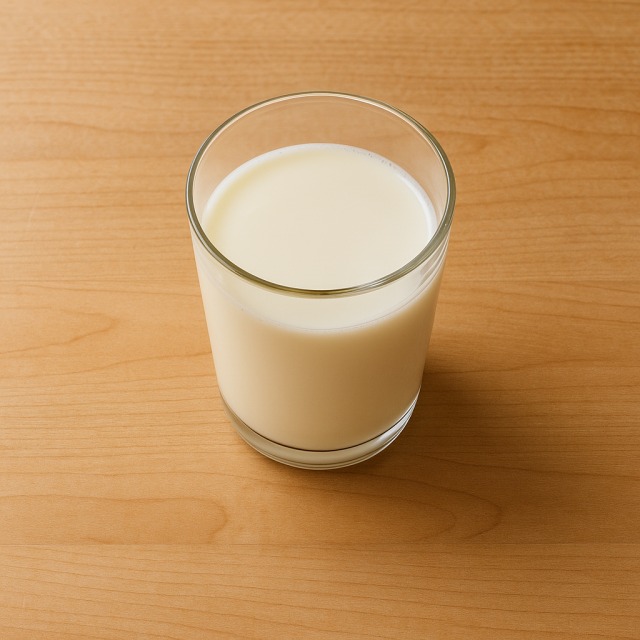
Skimmed milk - 100ml
Calories 33 kcal
Proteins 3.3 g
Lipids 0.2 g
Carbohydrates 4.6 g
Skimmed milk is considered a low-calorie dairy option, making it attractive to anyone looking to cut daily calories without sacrificing valuable nutrients. Its virtually fat-free composition still supplies complete proteins that contribute to muscle maintenance, while keeping calories under control for weight-management plans.
The drink is naturally rich in calcium and phosphorus, two minerals essential for bone health, and it provides significant amounts of vitamin B2 (riboflavin) and vitamin B12, both involved in energy metabolism – another reason why athletes appreciate its calories-to-nutrient ratio. Iodine, potassium, and small peptides present in milk have been studied for potential benefits on thyroid function and blood-pressure regulation. Because it delivers these micronutrients with so few calories, skimmed milk is often recommended in calorie-controlled diets, post-workout shakes, or recovery smoothies. Historically, industrial separation of the cream layer dates back to the late 19th century; this technological step allowed the modern food industry to offer a product combining the traditional taste of milk with fewer calories.
Tips for incorporating skimmed milk into a balanced diet
Thanks to its neutral taste and low calories, skimmed milk can easily enrich many light recipes. Blend it with a ripe banana and a spoonful of oat flakes for a satiating breakfast smoothie that adds fiber without piling on calories. For lunch, replace cream with skimmed milk in a velvety pumpkin soup: you keep the delicate texture while dividing the calories of the dish. At dinner, prepare a lean chicken casserole by simmering chicken breast, mushrooms, and herbs in skimmed milk instead of full-fat dairy; the result is rich in protein yet light in calories.
Skimmed milk also works in classic white sauces: a light béchamel thickened with a hint of white flour and seasoned with nutmeg pairs well with steamed broccoli. In desserts, use it in homemade rice pudding instead of whole milk to cut calories while keeping the creamy mouthfeel. Whatever the recipe, replacing higher-fat liquids with skimmed milk is one of the simplest ways to reduce calories but still add body, calcium, and proteins to meals.
Frequently Asked Questions
- How many calories are in skimmed milk?
- Skimmed milk provides 33 kcal per 100 g.
- Is skimmed milk good for weight-loss diets that count calories?
- Yes, its low-fat content keeps calories minimal while still offering proteins and calcium, helping you feel full without overshooting your daily calories.
- Does heating skimmed milk change its calories?
- No, bringing skimmed milk to a boil for porridge or a cappuccino does not alter its calories; only added ingredients will raise the calorie count.
- How do the calories in skimmed milk compare with those in semi-skimmed milk and whole milk?
- Semi-skimmed milk contains roughly twice the calories of skimmed milk, while whole milk can deliver three times as many calories because of its higher fat content.
- Can athletes rely on skimmed milk for post-workout recovery without excess calories?
- Absolutely. Skimmed milk offers complete proteins, electrolytes, and natural sugars, letting athletes replenish nutrients and fluids while keeping additional calories low.
- Does removing the fat reduce the vitamins or only the calories?
- The skimming process mainly removes fat and therefore calories; water-soluble vitamins (B2, B12) and minerals stay almost intact, but fat-soluble vitamins (A, D) drop slightly, so varied food choices or fortified products can compensate.
Similar foods
Information provided by Calorie Menu may contain inaccuracies or errors. It cannot, under any circumstances, substitute medical advice or medication.
